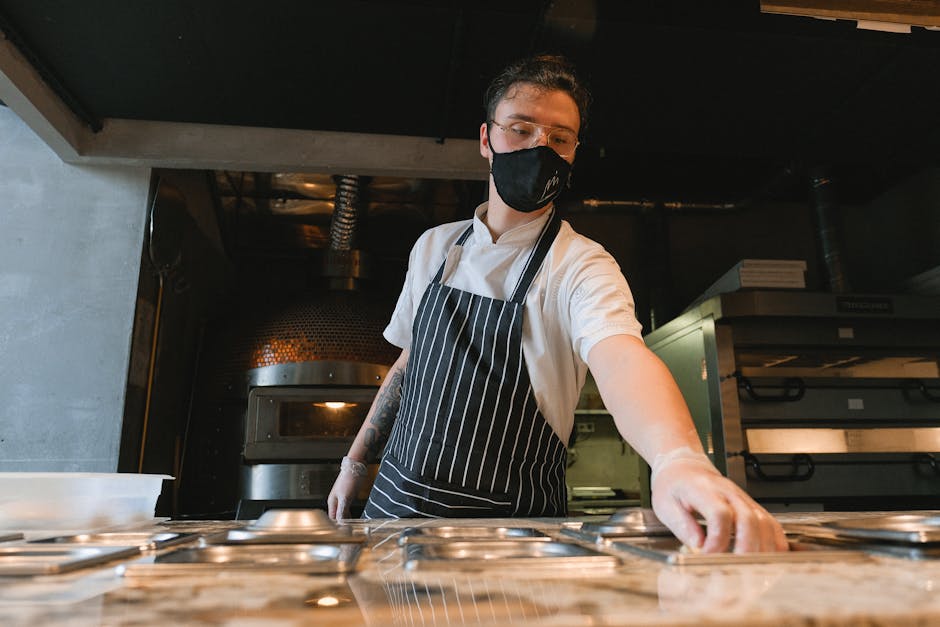Recruiting Nepali Hygiene Staff
Why Nepali Workers Excel in GCC Catering Hygiene Roles
Nepali professionals have earned an outstanding reputation in the GCC hospitality sector. Their success stems from several cultural and professional attributes. Specifically, they demonstrate remarkable dedication to cleanliness protocols and food safety standards. Additionally, their strong work ethic and adaptability make them ideal for the demanding catering environment.
According to a World Bank report, Nepal has significantly invested in vocational training for hospitality roles. Moreover, many Nepali workers possess formal training in food safety and hygiene management. This combination of inherent cultural values and professional training creates exceptional hygiene staff for catering projects.
Key Benefits of Hiring Nepali Hygiene Staff for Catering
Employing Nepali nationals in your GCC catering operation offers numerous advantages. First, they typically demonstrate lower turnover rates compared to other nationalities. Second, their English language proficiency facilitates better communication with management and clients. Third, they quickly adapt to international hygiene standards and protocols.
Other significant benefits include:
- Strong cultural emphasis on cleanliness and order
- Proven experience in high-volume catering environments
- Natural aptitude for team-based kitchen operations
- Positive attitude toward rigorous training programs
- Excellent compliance with safety and hygiene regulations
Essential Qualifications for Nepali Hygiene Staff
When recruiting Nepali hygiene staff, certain qualifications ensure optimal performance. Basic food safety certification is essential, with many candidates holding HACCP or equivalent credentials. Furthermore, relevant experience in commercial kitchens or large-scale catering operations is highly valuable.
Required Certifications and Training
Professional certifications significantly enhance candidate quality. Look for individuals with documented training from recognized institutions. The Nepal Hospitality Professionals Association offers various certification programs specifically designed for international employment. Additionally, many technical schools in Nepal provide specialized courses in industrial cleaning and sanitation.
Navigating GCC Visa and Labor Regulations
Understanding local regulations is crucial for successful recruitment. Each GCC country has specific requirements for foreign workers. For example, Saudi Arabia’s Ministry of Labor has particular procedures for hospitality workers. Similarly, the UAE requires specific documentation for catering staff.
Key considerations include:
- Proper work visa categorization
- Medical examination requirements
- Labor contract specifications
- Accommodation standards compliance
- Insurance and benefits mandates
Effective Sourcing Strategies for Nepali Staff
Finding qualified Nepali hygiene staff requires targeted approaches. Established recruitment agencies in Nepal with GCC experience provide the most reliable channel. Additionally, vocational training institutions often have placement programs for graduates. Digital platforms specializing in Gulf employment also offer access to pre-vetted candidates.
Partnering with Specialized Recruitment Agencies
Collaborating with agencies that understand both Nepali and GCC labor markets is invaluable. These partners handle everything from initial screening to documentation preparation. Moreover, they ensure candidates meet both your technical requirements and cultural expectations. For professional assistance, consider reaching out to our expert team that specializes in Nepal-GCC recruitment.
Cultural Integration and Retention Strategies
Successful integration of Nepali staff ensures long-term retention and performance. Cultural orientation programs help employees adjust to GCC work environments. Additionally, providing Nepali cuisine options in staff catering demonstrates cultural sensitivity. Regular team-building activities foster cross-cultural understanding among diverse kitchen teams.
According to a SHRM study, companies that invest in cultural integration see 40% higher retention rates. Furthermore, clear communication channels and grievance mechanisms help address concerns promptly. Ultimately, creating an inclusive environment benefits both employees and catering operations.
Training and Development for Hygiene Excellence
Ongoing training ensures Nepali staff maintain the highest hygiene standards. Regular workshops on updated food safety protocols are essential. Moreover, cross-training in various kitchen departments enhances overall understanding of hygiene requirements. Many GCC countries mandate specific training programs for catering staff, which must be incorporated into your development plan.
For comprehensive training resources, visit our resource library containing specialized materials for catering hygiene staff. Additionally, consider implementing certification programs recognized across GCC states to enhance your team’s credentials and performance.
Performance Management for Hygiene Teams
Effective performance management systems ensure consistent hygiene standards. Clear key performance indicators (KPIs) should measure cleanliness, compliance, and efficiency. Regular audits and inspections help maintain quality control. Furthermore, recognition programs motivate staff to exceed hygiene expectations.
Implementing Effective Monitoring Systems
Modern technology offers excellent monitoring solutions for hygiene management. Digital checklists and reporting systems streamline compliance documentation. Additionally, regular third-party audits provide objective performance assessments. These systems not only maintain standards but also demonstrate compliance to clients and health authorities.
Frequently Asked Questions
What makes Nepali staff particularly suitable for hygiene roles in GCC catering?
Nepali workers bring cultural values emphasizing cleanliness, strong work ethics, and often formal training in food safety. Their adaptability to strict protocols and reliability makes them ideal for maintaining GCC catering hygiene standards.
What certifications should I look for when recruiting Nepali hygiene staff?
Essential certifications include basic food handling certificates, HACCP training, and any GCC-recognized hygiene qualifications. Additional certifications in industrial cleaning or sanitation management are valuable advantages.
How long does the recruitment process typically take for Nepali catering staff?
The complete process usually takes 8-12 weeks, including sourcing, interviews, documentation, visa processing, and relocation. Partnering with experienced agencies can streamline this timeline significantly.
What are the main challenges in recruiting Nepali hygiene staff for GCC projects?
Key challenges include navigating complex visa regulations, ensuring credential verification, managing relocation logistics, and providing adequate cultural orientation. However, these can be effectively managed with proper planning and expert partners.
How can I ensure cultural integration success for Nepali staff in GCC catering?
Successful integration requires comprehensive orientation programs, language support if needed, cultural sensitivity training for all staff, inclusive policies, and regular check-ins to address any concerns promptly.
Conclusion: Optimizing Your Hygiene Team Recruitment
In conclusion, recruiting Nepali hygiene staff for GCC catering projects offers significant advantages in maintaining exceptional standards. These dedicated professionals bring both cultural predisposition and formal training to hygiene roles. Furthermore, their reliability and adaptability make them valuable long-term assets to any catering operation.
To summarize, successful recruitment requires understanding both Nepali workforce capabilities and GCC regulatory requirements. Additionally, effective integration and ongoing development ensure optimal performance and retention. Ultimately, investing in proper recruitment processes yields substantial returns in service quality and compliance.
Ready to enhance your catering team with qualified Nepali hygiene professionals? Book a consultation with our experts to develop your customized recruitment strategy. Finally, take the first step toward building a world-class hygiene team that elevates your catering service excellence.




